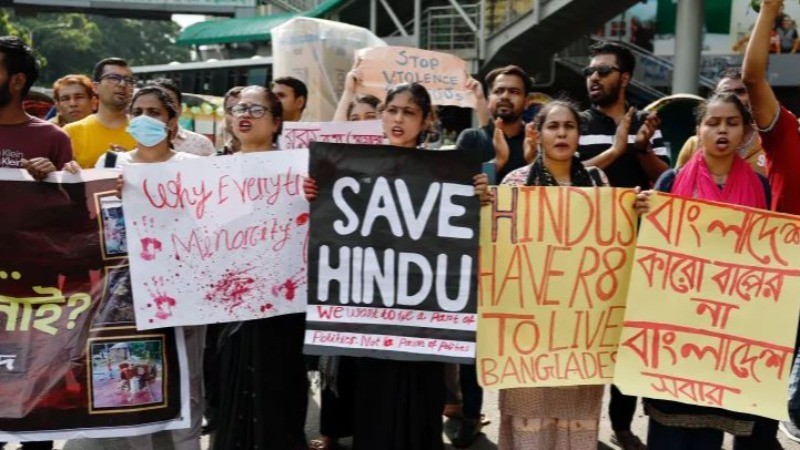
Srinagar: The death of Hassan Nasrallah, the head of the Lebanese terrorist organization Hezbollah, was widely mourned not only in the Muslim world but also in Kashmir, India. Upon hearing the news of his death, thousands of Kashmiris gathered on the streets of Srinagar and Budgam and raised slogans against Israel. Due to this incident, it can become a major issue in the ongoing assembly elections in Kashmir. Kashmir leaders also mourned the death of Nasrallah. Former Chief Minister Mehbooba Mufti canceled her election campaign on this occasion, for which BJP leader Kavinder Gupta criticized her.
He said, "Why is Mehbooba Mufti so sad about Nasrallah's death? She remains silent when Hindus are attacked in Bangladesh." Condemning the terrorist organization Hezbollah, Kavinder Gupta said that Nasrallah's death is the end of a person who spread terror all over the world. He termed Mehbooba's grief as "crocodile tears" and said that people understand its real intention. National Conference leader Aga Syed Ruhullah Mehdi also cancelled his meeting and said that a major incident has happened, due to which he is stopping his campaign. Meanwhile, the question arises that the leaders of the Indian opposition have always been raising their voice on the issues of Gaza-Palestine. Congress had passed a resolution in support of Palestine in its Working Committee (CWC) without condemning the terrorist attack of Hamas. Rahul and Priyanka Gandhi's tweets were also seen in this context. But, when it comes to atrocities on Hindus in Bangladesh, these same people remain silent, because the people being killed there are Hindus and the attackers are radical Muslims.
This raises the question that why do opposition leaders hesitate to speak against their vote bank? When they shed tears for the terrorists being killed across the seven seas, while turning a blind eye to the atrocities happening in their own neighboring country, then whom should Hindus expect? Why do these leaders have full sympathy only for one community? Are people of other religions not human beings? This situation makes it clear that religious and community interests are being given priority in politics, which raises many questions.
A Decade of Connection: PM Modi Celebrates 10 Years of 'Mann Ki Baat
Sharad Pawar Defends Gandhi Family, Criticizes PM Modi at Pune Rally
Arvind Kejriwal Leads Roadshow in Haryana, Promises Key Reforms for Voters